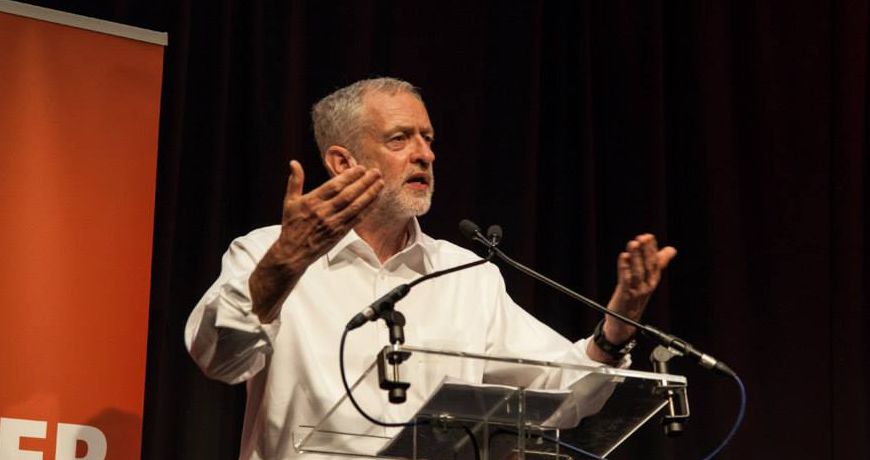 by Ken Ferguson
by Ken Ferguson
The recent general election which reduced the Tories to a minority government and put UK Labour some fifty seats behind them has caused shock waves across politics not least in the movement for Scottish Independence.
Recent weeks have displayed a range of infighting, name calling, political confusion, bile and in some cases simply personal posturing. This has including attacks on Yes backers who voted Labour, criticism on the topic of who is or isn’t acceptable within the Yes camp and how all this should be reported in the media.
This culminated with a series of columns from various Yes luminaries arguing that the Yes movement is really alive and well and citing – in one case, as a football team – the talents in its ranks. Unlike the Scotland teams which used to actually win in the glory years, it was fairly light on working class talent.
It is probably necessary here to set out two truths about this spat and what it tells about the politics currently facing supporters of independence today.
First, it simply flies in the face of reality to suggest that the broad pluralist mass Yes movement built around the 2014 referendum still exists today. It clearly does not. A movement certainly exists but it is a changed formation to that which so closely challenged the power of the British state in 2014. Most notably the mass upsurge in support moving from Yes as a movement to the SNP as a party radically changed the dynamics and nature of the former.
Aside from sporadic demonstrations – the public face of Yes has merged with that of the SNP and has, in turn, become linked in the public mind with their fortunes. Bluntly this has, at best, becalmed the independence movement and, evidence suggests, has set it back. In place of the vibrant, optimistic mass movement of 2014 – the Wind that shook the unionist Barley – Yes is now equated with a cautious SNP government which looks increasingly like a centrist formation; stifling 2014’s real thirst for radical change.
The second truth flowing from this is that in place of being part of a movement prominent non-SNP independence supporters are now largely to be found in the columns of newspapers, websites and cyberspace where in turn they rehearse the same hand wringing about when to hold another indyref, how wicked the unionists are, and so on.
The evidence strongly suggests that the public, while still winnable for the independence case, does not share those concerns and is seeking a politics which answers the big questions in their lives such as housing, jobs, wages and health. Work has been done on many aspects of these issues under independence, but they need to escape from discussion seminars and think tanks into the public space inhabited by the ordinary citizens.
[x_blockquote type=”left”]Independence must again become the concerns of far greater numbers than today’s stalwarts.[/x_blockquote]This urgent need was spotlighted by the results in the recent election. Led by the Tories, the unionist block was given a free run by the SNP who parked – yet again – the independence issue while voters were showered by Lib Dem, Labour and Tory anti independence propaganda leading to tactical voting and the result we now know. This toxic combination of SNP feebleness and unionist boldness on independence has returned enough Tory MPs to keep the grisly May in power in Westminster.
However, for the independence movement, there is another potentially more pressing issue to deal with in the shape of the impact of Jeremy Corbyn and his radical politics. No serious socialist can do other than welcome the impact of Corbyn who is an honest and principled man – he has played a key role in shifting the public debate and placing socialist ideas on the policy agenda and challenging the “market knows best” mainstream.
[x_pullquote type=”right”]SNP feebleness and unionist boldness on independence has returned enough Tory MPs to keep the grisly May in power in Westminster[/x_pullquote]It is hardly surprising in this context then that numbers of 2014 Yes supporter, hungry for social justice and change, although conflicted about Labour’s past, plumped for them as an endorsement of the Corbyn agenda. Unsurprising but wrong in that voting Labour in Scotland was little to do with backing Corbyn’s socialist politics but everything to do with endorsing Dugdale’s strident “no surrender” line against even allowing Scots a vote on the issue.This view is confirmed both by the relatively small growth in Scottish Labour’s vote share and by Corbyn’s allies in the Campaign for Socialism who warned that future Labour advance needs a left turn.
The choice for socialists seeking change is simple. Corbyn puts his faith on winning socialist change through winning a Westminster socialist majority and embarking on a British Road to Socialism. No such road exists in the world of reality.
 As former Labour MP and MSP John McAllion writes elsewhere in this fortnight’s Voice, the entire undemocratic – indeed archaic – Westminster set up with its unelected Lords, powers of the Crown in Parliament and its semi democratic first past the post voting system is a bulwark against change not a road to it.
As former Labour MP and MSP John McAllion writes elsewhere in this fortnight’s Voice, the entire undemocratic – indeed archaic – Westminster set up with its unelected Lords, powers of the Crown in Parliament and its semi democratic first past the post voting system is a bulwark against change not a road to it.
By contrast, an independent Scotland won by a mass Yes movement based on a proportional democratic parliament can generate momentum for real socialist change putting the needs of people and planet before the profits of an elite few. For Yes supporters, the British Road to Socialism, even with Corbyn at the wheel, will prove a diversion and we need to keep our eyes on the prize of independence as the key to change.
The Scottish Socialist Voice is out Friday. Subscriptions are available here.
Main photos: Craig Maclean
